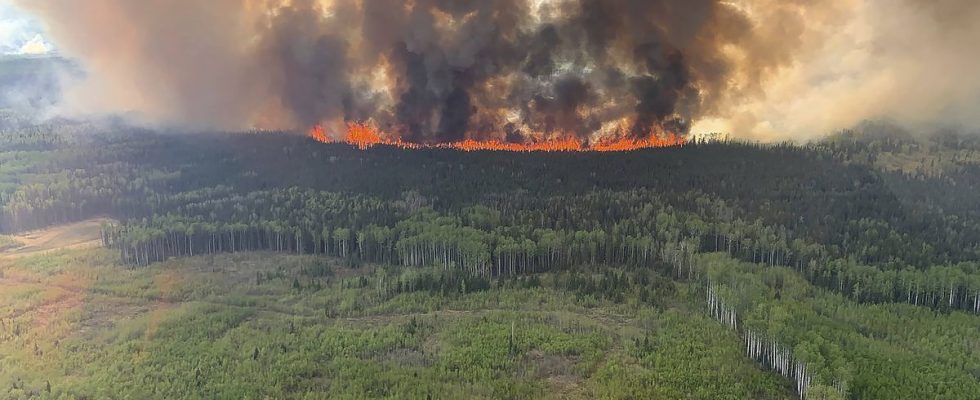Since the beginning of the month, Alberta is on fire. In the “Oilberta” region alone, which produces 82% of Canadian oil, more than 800,000 hectares of forest have gone to ashes. On Saturday, 2,500 firefighters were still battling 87 forest and brush fires there, 23 of which were considered uncontrolled. Worse, the fires spread to other regions, causing a real “Canada drama”, as our colleagues from Release.
The fires are now affecting Saskatchewan, British Columbia and the Northwest Territories, reports Bill Blair, Canadian Minister of Public Safety. Thousands of people were evacuated, like Debra Chambaud. “I miss home. I hope to find her but I was told that she had burned down,” the native told CBC public television. Two years ago, she had already lost her house and her son in another fire. “I don’t want to think about it too much but it’s difficult,” she breathes, from the refuge 500 kilometers from her village.
Drought, heat and strong wind
Canada is particularly sensitive to climate change. The country is warming up twice as fast as the global average, and has been regularly hit by extreme weather events in recent years. In Ontario, more than 780,000 hectares had burned in 2021, a record. That same summer, British Columbia was crushed for several days under a “heat dome” by temperatures approaching 50 degrees.
“We only had snow up to our ankles” this winter, Cheryl Harris told Release. Ordinarily, the Entwistle campground manager would sink in powder at least waist-deep. This overly mild winter was followed by a particularly dry month of April, then the month of May arrived with violent winds and record temperatures. Perfect cocktail for monster fires, mostly caused by human activity.
The rain is finally coming
To best fight the flames, Canada turned to international aid, led by the United States, Mexico, Australia and New Zealand. Parks in the province of Alberta, which has declared a state of emergency, were also closed to the public this holiday weekend in May to reduce the risk of new outbreaks of fire. “Given the amount of fires we are currently observing, it will take months before they are brought under control, unless there is a significant weather change that would bring a lot of humidity,” explained Josée St-Onge on May 18. , spokesman for relief in Alberta speaking of a “long battle”.
His prayers seem to have been heard. While this weekend, the temperatures were again above seasonal norms, around 28 degrees, “our forecasters are following a front that arrives from tomorrow in the province”, indicated this Sunday Christie Tucker, from Alberta Fire Service. This weather phenomenon “should bring essential cool temperatures, humidity and even rain” for “a few days”. And to add: “It all depends on where this rain will fall exactly… But in the area where we expect it, it should make a big difference. »

